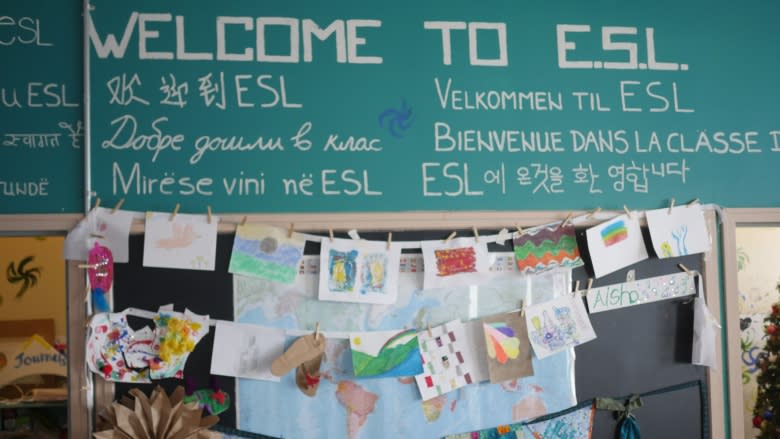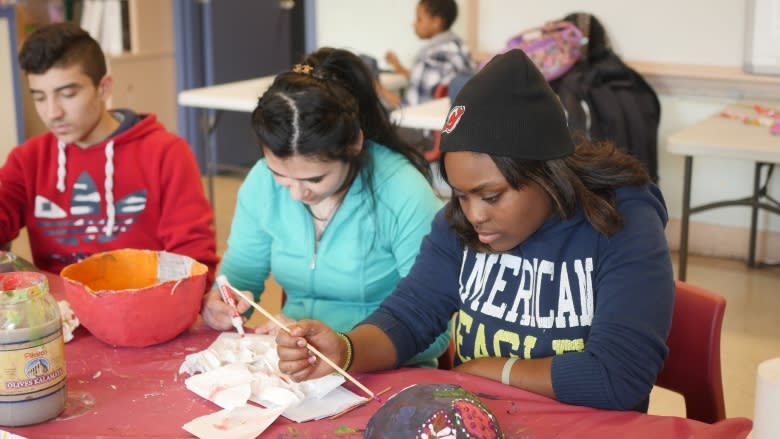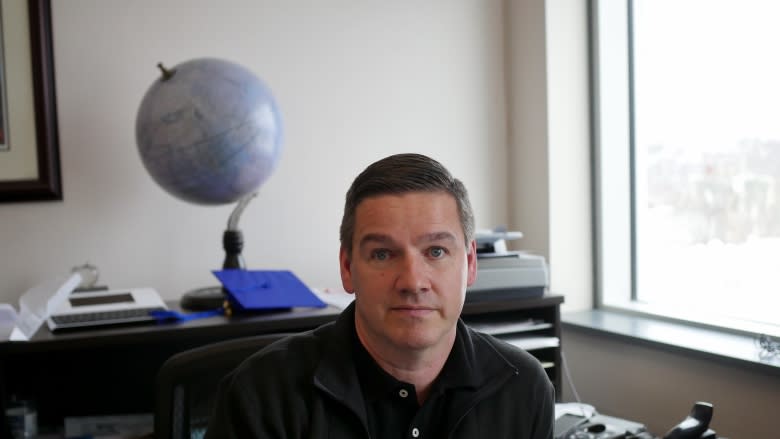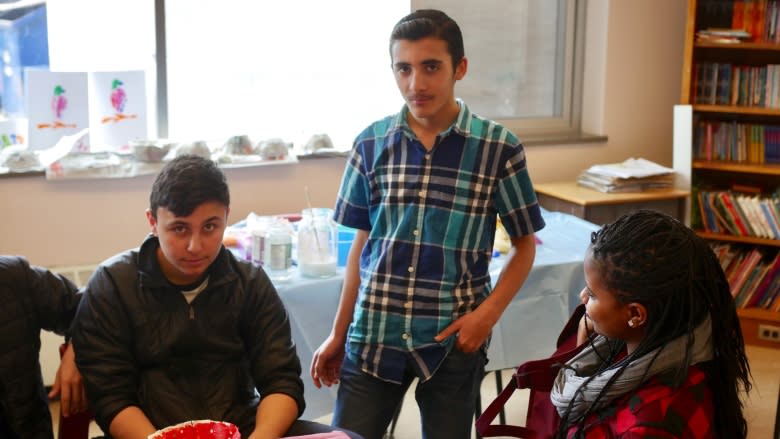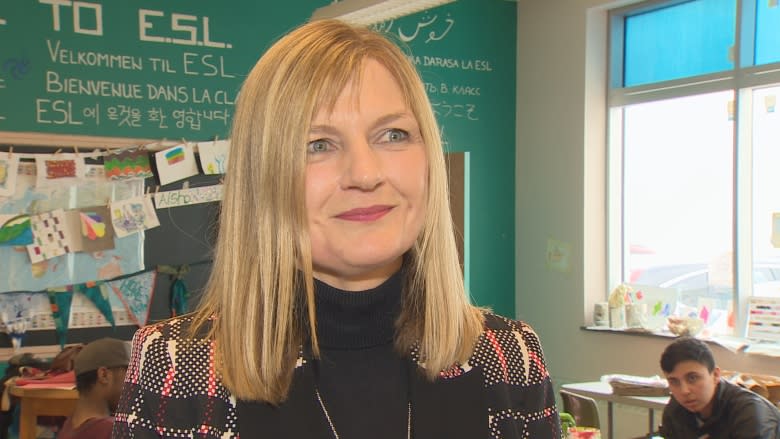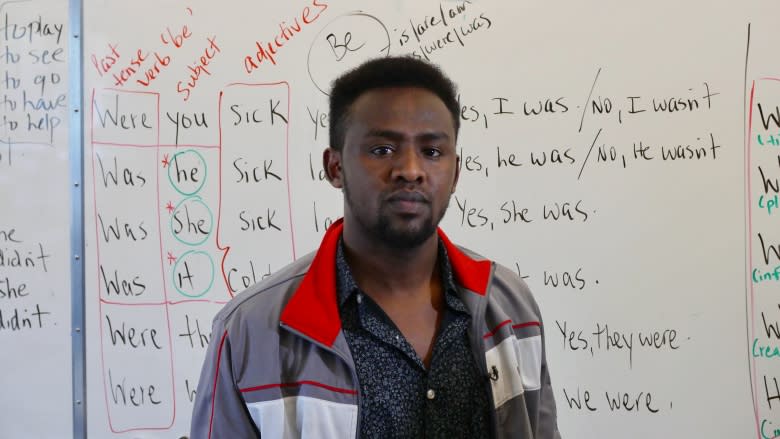ESL 2.0: How one St. John's school is helping new immigrants adjust to life in Canada
As more and more immigrants move to Newfoundland, teachers and administrators at Holy Heart of Mary High School in St. John's are doing their best to tackle the needs of a new generation of English as a second language students.
Principal Sheldon Barry told CBC News that because the school has a population of over 1,000 students from more than 55 different countries, faculty members are well positioned to provide support for new immigrants to Canada.
He added that many immigrant families in St. John's seek out the Holy Heart ESL program. They expect it's where their children will find a community of peers from similar backgrounds and also integrate with the student body at large.
"I've been here six years now and the numbers are definitely increasing," said Barry.
"We have two programs here and we're up to around 130 to 140 [ESL students], which is a lot of growth in a small time frame, and from all indications from the people that are working with the Association for New Canadians and the government that is only going to increase."
But even though the number of students in the program has increased, the amount of staff on hand to support them has remained the same.
Barry said staffing decisions are ultimately in the hands of the N.L. English School District, who provides new staff under what he called "needs-based allocations."
"Everybody would love extra help. I mean it's not just that classroom, it's any classroom," said Barry.
New immigrants, new challenges.
ESL head Martha Trahey agrees with Barry's assessment.
She's been teaching at Holy Heart for over 17 years and has witnessed a 30 to 40 per cent increase in ESL enrolment over that time period.
According to Trahey, many students among the most recent group of immigrants need more help than in the past.
"Where we have more students coming directly from refugee camps, there's been a higher level of need I would say."
She said these students have come from countries like Syria, Eritrea, Ethiopia and Sudan and have often missed many years of school by the time they get to Holy Heart.
Students with more complex needs participate in the LEARN program, which aims to catch them up to the regular stream of classes by offering a crash course on many of the things they missed along the way.
"We start with basic literacy, basic ESL, an introduction to grade level math, that sort of thing. There is a multi-year program before they're ready to take on the full course load."
Learning English from scratch isn't easy either, but after being placed in a brand new environment, Trahey said it isn't long before the students start to succeed.
"Within a year, we see students making great progress, proceeding just in leaps and bounds," she said.
Embracing new surroundings
On a recent weekday, the students at the foundation ESL level were enjoying a break from the often grueling process of learning a new language by taking time to work on art projects with the help of an instructor from Memorial University.
Grade 12 ESL student Ibrahim Ayub was one of several students who dropped by to survey the projects and discuss his own experiences in the program.
Originally from Ethiopia, he came to Newfoundland in 2013.
By all accounts, he's a model of what can happen when a student goes through the ESL program.
In the years since he came to Holy Heart, his language and writing skills have grown significantly, and he now plans to use what he's learned to pursue a dream near to his heart.
"I have a plan to do nursing in MUN in September. I'm just waiting to find out whether they accept me or not," he said.
Ayub said he was motivated to do a degree in nursing after feeling helpless back home in Ethiopia.
"People are dying because of little things," he said. "One day we would just go from village into the city. One girl she's pregnant and she's in labour and before she gets to the hospital she died on the road."
With the new skills he's acquired in Newfoundland, Ayub is putting the building blocks in place to make sure the next time he's in such a position, he can step in and help.
"If I have that knowledge at that time, I can help her to do something, to save her life. Those kind of things motivate me," he said.

